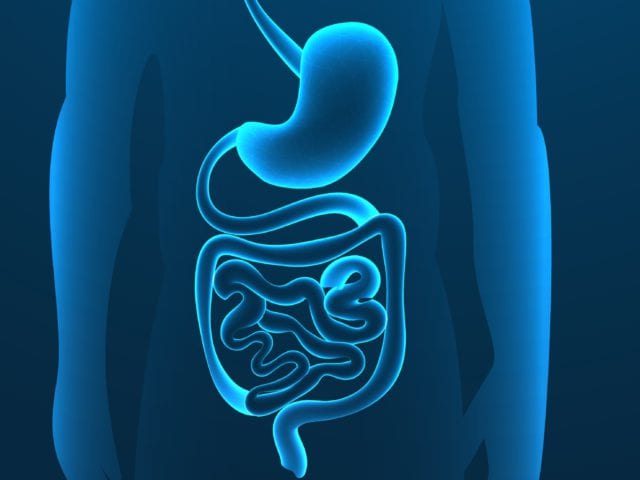When it comes to trendy wellness topics, gut health often comes to mind, and for a good reason. A healthy gut is an indicator of good health and it is often said, all illnesses begin in the gut so you should know something is amiss if you’re having digestion problems. Now, while prebiotics and probiotics have already established themselves as a key component for good gut health, how much do you know about postbiotics?
In conversation with TC46, Gastroenterologist & Hepatologist Dr Nutan Desai of Fortis Hospital, Mumbai, addresses the growing curiosity about postbiotics. Here, she talks about the difference between prebiotics, probiotics and postbiotics, their impact on gut health, and how to consume them correctly.
1. What are postbiotics, prebiotics and probiotics?
Postbiotics is the youngest and newest member of the family of ‘biotics’. Biotics refers to nutritional strategies that can be utilized to direct the gut microbiota towards a more favourable state for host health and include microbes, food components, nutrients and metabolites that affect health.
The members of the biotic family include the following:
- Prebiotics: Substrates, often fibres, selectively utilized by host microorganisms that offer health benefits.
- Probiotics: Live microorganisms which when administered in adequate quantities confer a health benefit to the host.
- Paraprobiotics: Inactivated or non-viable probiotic strains which when given in sufficient amount, confer health benefits to host.
- Postbiotics: It is a group of metabolites produced in the fermentation process of dietary components (mainly fibres and polyphenols, but also complex carbohydrates, proteins and lipids), as well as the endogenous components generated by bacteria-host interactions that influence human health, directly or indirectly. These metabolites include short-chain fatty acids, functional proteins and peptides as well as cell wall components of bacteria and extracellular peptides.
Fermented foods and beverages contain bioactive peptides and living microorganisms that can modulate immune responses, impacting the composition of intestinal microbiota. In simple words, probiotics eat prebiotics, and then postbiotics is the end product.
2. How exactly are postbiotics different from prebiotics and probiotics?
Unlike probiotics, postbiotics are not alive, are more stable, and have a longer shelf life. They don’t require strict production and storage conditions, thus making them more suitable for places with inconsistent access to refrigeration and processing. They can be used in immunocompromised and critically ill patients as well.
3. What are the benefits of postbiotics?
Potential health benefits of postbiotics include:
- Anti-inflammatory
- Immunomodulating effects
- Antiobesogenic
- Antihypertensive
- Hypocholesterolemic
- Antiproliferative
- Antioxidant effects
They also boost the immune system, improve gut barrier function and balance of host-microbiome.
Postbiotics are involved in the regulation of neurological and physiological systems in addition to the immune system. Iron, calcium, phosphorus, and zinc are dependent on bacteria for the processes of absorption and/or maintenance in the body. Bacteriocins from lactic acid bacteria have low or no cytotoxicity can inhibit the growth of enteropathogenic bacteria.
4. What is the impact of postbiotics on host-microbiota interactions?

Following are the impact of postbiotics on host-microbiota interactions:
- Induce cellular immune and anti-inflammatory responses by inhibiting IL-8 secretion in intestinal epithelial cells by inducing secretion of microbial soluble anti-inflammatory peptides
- It can exert immunomodulation activity by increasing levels of Th1-associated cytokines and reducing Th2-associated cytokines
- Prolong dendritic cell survival and maturation, and induced high IL-10 production through TLR-2, suggesting an immune regulatory function
- It improves epithelial barrier function
- Exopolysaccharides exhibit cardioprotective, antiulcer, antioxidant, and cholesterol-lowering effects as well as inhibiting the proliferation of certain types of tumour cells
5. How do postbiotics affect skin & hair? Are there any potential risks of taking postbiotics?
By restoring healthy skin microbiome, postbiotics may find application in various skin and hair disorders. Lactosporin, a postbiotic, may have potential benefits in the treatment of acne and inflammatory skin conditions, as well as antiageing effect though data is still emerging. Postbiotics are also investigated for efficacy in the treatment of dandruff, itchy scalp, and immune-mediated scalp disorders.
Generally, postbiotics are considered safe, it may lead to some undesirable effects like bloating or increased frequency of bowel movements.
6. What are some precautionary tips for introducing postbiotics to the body?
Individual responses to postbiotics differ according to their composition; some of the tips which can be followed are:
- Postbiotic supplementation alone is unlikely to work unless combined with lifestyle modifications, therefore modify the lifestyle
- The data on efficacy and applications of postbiotics is still in its infancy and evolving, though the inclusion of foods like yoghurt, buttermilk, soft cheese, sourdough bread, pickles which are rich in postbiotics in your diet regimen in moderate quantities is safe and helpful
- Before starting a commercial postbiotic supplement on your own, it would always be advisable to talk to your health provider first
7. Which postbiotics foods would you recommend?
The source of postbiotics are:
- Buttermilk
- Curd (dahi)
- Yoghurt
- Pickles
- Soft cheese
- Sourdough bread
Doctor consultation is advisable to take any postbiotics supplement, as it will have a diverse impact on individuals.